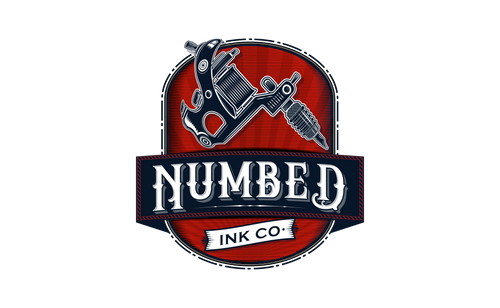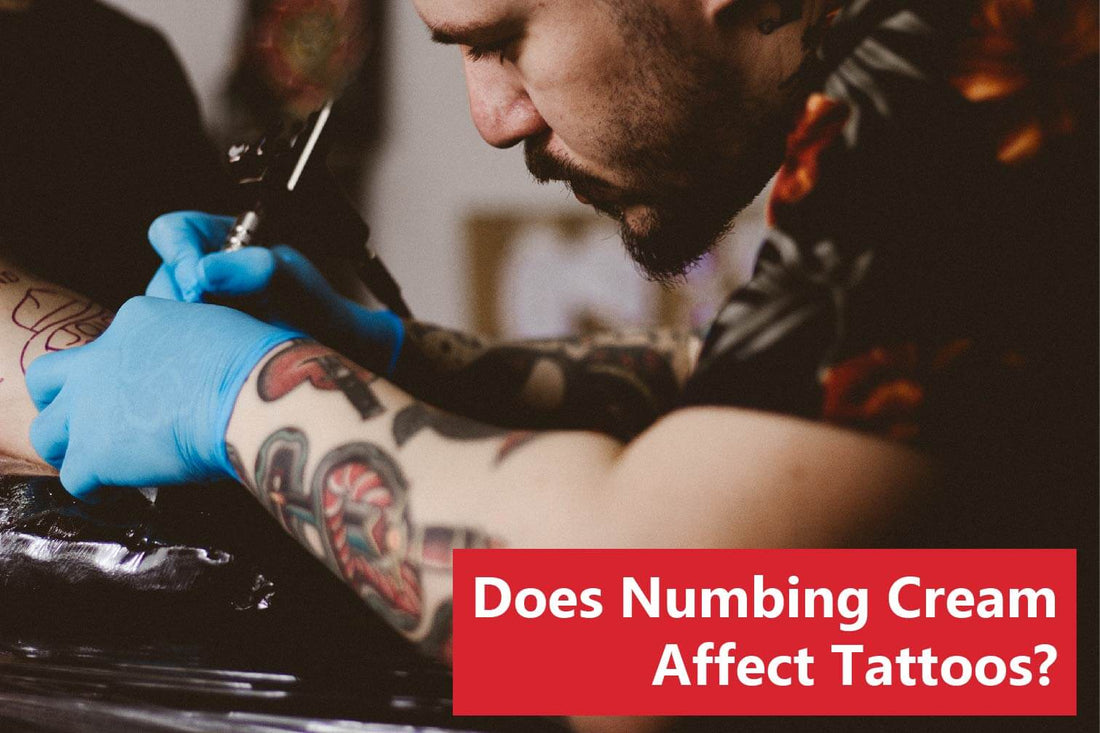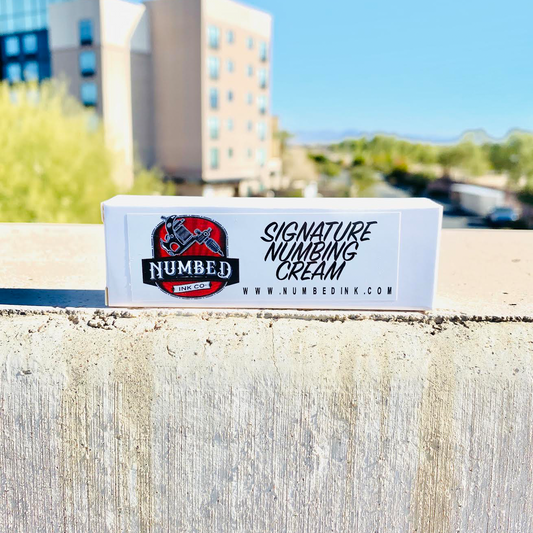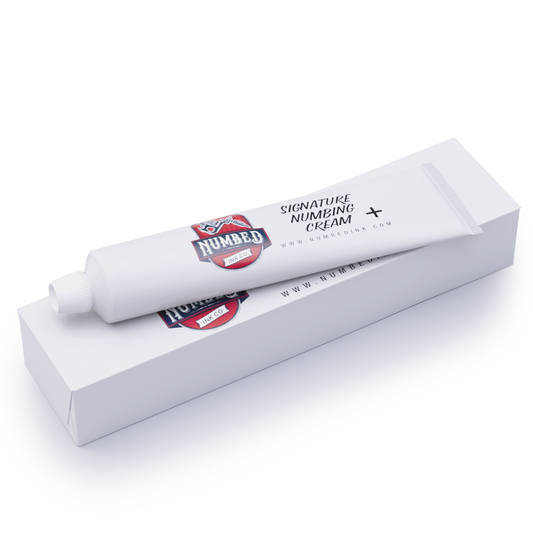Tattoos are painful, that’s no surprise. But with the tattoo numbing creams, they don’t have to hurt so much.
But with their recent popularity, you’re probably wondering if they’re too good to be true. Are they all hype or do they actually eliminate pain? And aside from the pain, do they affect the quality of your tattoo or the healing process?
So if you’re debating whether or not to use tattoo numbing creams for your next piece, this should help.
Does numbing cream affect tattoos?
Tattoo numbing creams do not negatively affect your skin or the tattoo process when applied properly. It’s 100% safe and effective to numb large or sensitive areas.
These topical creams act as local anesthetics, numbing the area for 4-6 hours so that you can sit comfortably during your session. And once your piece is done, you can wipe away the excess cream and begin the healing process without worry about infections or fading.
And despite the fact that it significantly reduces pain, some people refuse to use numbing cream. But why?
Many argue that “pain is part of the process” and numbing creams are an excuse that shows weakness. But if you’re an ink enthusiast with a low pain tolerance, numbing creams offer a pain-free solution to getting your dream tattoo. And the opinion of others shouldn’t hold you back from expressing yourself.
Should I use tattoo numbing cream?
Ultimately, the choice to use tattoo numbing cream is up to you – your body, your choice. But there are a few things you should consider.
Size & location of the tattoo
Numbing creams are most effective for tattoos on sensitive parts of the body like your ribs, ankles, and neck. They’re also great for dulling pain for larger designs like chest & back pieces, half sleeves, and full sleeves. That way you don’t have to endure the needle pain for several hours at a time.
So if you’re just getting a small design that may only take an hour or so, you may not need a numbing cream. But that doesn’t mean you can’t use them – they work just as well! Just a warning though, the numbness may last for several hours after your small piece is complete.
How’s your pain tolerance?
If you have a low pain tolerance, you may have written tattoos off a long time ago. But with numbing creams, you can put them back on your to-do list. They reduce pain to practically nothing, allowing you to finally get that tattoo you’ve been dreaming of.
And even if you have a high pain threshold but don’t want to deal with the scratching, stinging sensation, numbing creams work just as well so you can sit comfortably numb for your entire session.
Do you have sensitive skin?
A low pain tolerance is one thing, sensitive skin is another. If you have sensitive skin, you probably have to avoid certain lotions, makeup, and soaps that cause irritation. And with the chemical composition of numbing creams, it’s likely that most of them will do more harm than good. Make sure to talk to your dermatologist before sitting for your tattoo – they may even prescribe you a pharmaceutical-grade numbing cream for your skin type.

Which type of numbing cream should I use?
There are three types of numbing creams: nerve deadeners, nerve blockers, and vasoconstrictors. Each uses different combinations of ingredients to achieve a numbing effect.
Nerve deadeners - The active ingredient is lidocaine, which temporarily “deadens” the nerves in your skin to prevent the brain from registering pain. Our Signature and Signature+ Numbing Creams are nerve deadeners made with lidocaine, glycerin, butylene glycol, and water. These are generally considered to be the safest and most effective choice among tattoo enthusiasts.
Nerve blockers - The active ingredients are benzocaine and tetracaine, which block the pain signals from reaching your brain. You’ll still feel discomfort in the area but it will be a dull sensation rather than a sharp, stinging pain.
Vasoconstrictors - The active ingredient is epinephrine, which constricts blood flow to reduce bleeding & swelling. They’re also the most dangerous type of numbing cream.
Make sure to do your research when shopping for a topical cream – choose one that’s highly-reviewed and trusted by artists; don’t just grab the cheapest one available.
Will my tattoo artist let me use numbing cream?
Most tattoo artists will allow you to use numbing cream. Some may even encourage it! If you’re comfortable during the session, it enables them to work without distractions and constant breaks.
However, there are some artists who won’t work with numbing creams, or at least ones they’ve never tried before. If they won’t let you use numbing cream, you may have to find a different artist or deal with the pain.
Is it okay to put numbing cream on before a tattoo?
Yes, it’s okay to use numbing cream for your next tattoo - it won't affect your new ink. Just make sure to consult with your artist & dermatologist and apply at least 60-90 minutes before your session. It won't affect the color, design, or the healing process of your tattoo.
Regardless of what you decide, make sure to choose the best numbing cream for your skin!





